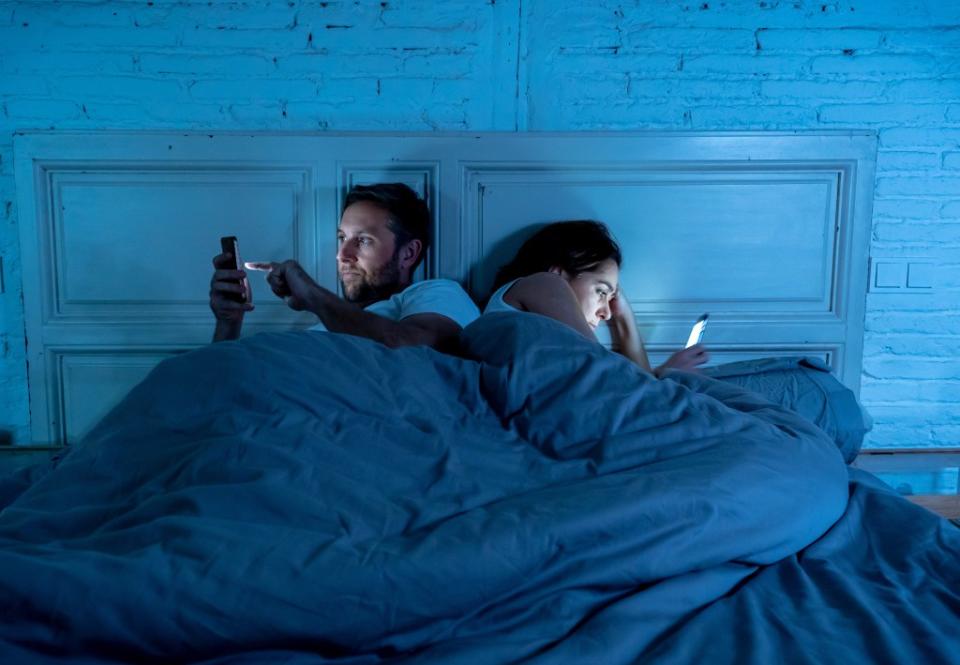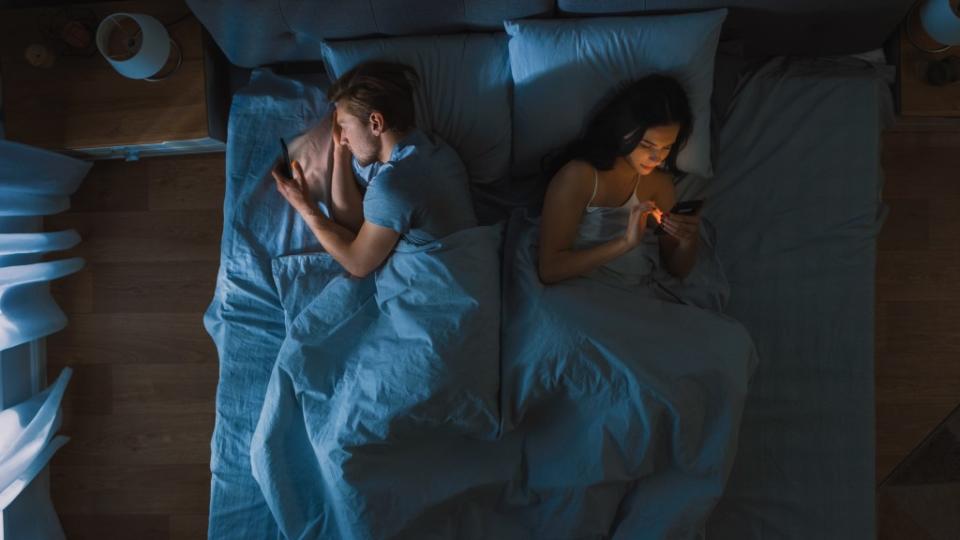This one bedtime habit is ruining your relationship — and it’s not bad sex

Your nightly routine of social media scrolling could be deadly — to your love life, at least.
Known as “parallel scrolling,” the habit of silently swiping on your phone while laying next to your partner could be a death sentence for your relationship, experts say.
“You’re basically decreasing the chances of intimacy and affection, or just generally engaging with your partner,” Tracy Ross, a NYC-based couples and family therapist, told HuffPost.
“Connection is critical for a strong relationship — and it needs to happen regularly, without fail, for a couple to thrive.”
Laying in bed can be a time to connect with each other — something Ross says many couples lack. Her clients often complain that the other person is “constantly on their phone” or seems “distracted,” making it difficult to hold their attention and, in turn, can create “more separateness.”


“While the need to unwind at the end of the day is completely understandable, it’s hard to deny the damage it can do to a relationship,” she said.
However, psychotherapist Aimee Hartstein, who is based in NYC, told the outlet that it may be unrealistic to expect couples to completely unplug for the entire evening.
“Like it or not, our phones are here to stay, and it’s an unusual couple who will put them away for the entire night,” she explained.
“It’s a way people get their news, talk to friends and are entertained. If a couple is happy in the relationship, it’s probably not a problem.”

Ross recommended inquiring about phone use, perhaps by asking the other person if they want to “find something to do together” to get away from the screen.
“Ask yourself if you are using the phone to avoid your partner — and if so, what could that be about?” Ross added, noting that screens are sometimes used as an avoidance tactic. “Habits tend to stick, and unless we actively try to change them, they persevere.”
If you suspect your cell phone could be encroaching on quality time, however, experts recommend setting screen limits, such as no phones at dinner, or taking one day out of the week to wind down without screens.
If all else fails, try “parallel play,” the act of engaging in whatever the other person is looking at on their screen, whether it’s a video game livestream or a TikTok feed.
“People often do better scrolling in bed at night when they are sharing what they are doing,” Hartstein explained.
“If you read each other bits from the news or show each other funny pet memes, then you’re still scrolling but also connecting to one another. That’s the goal.”


